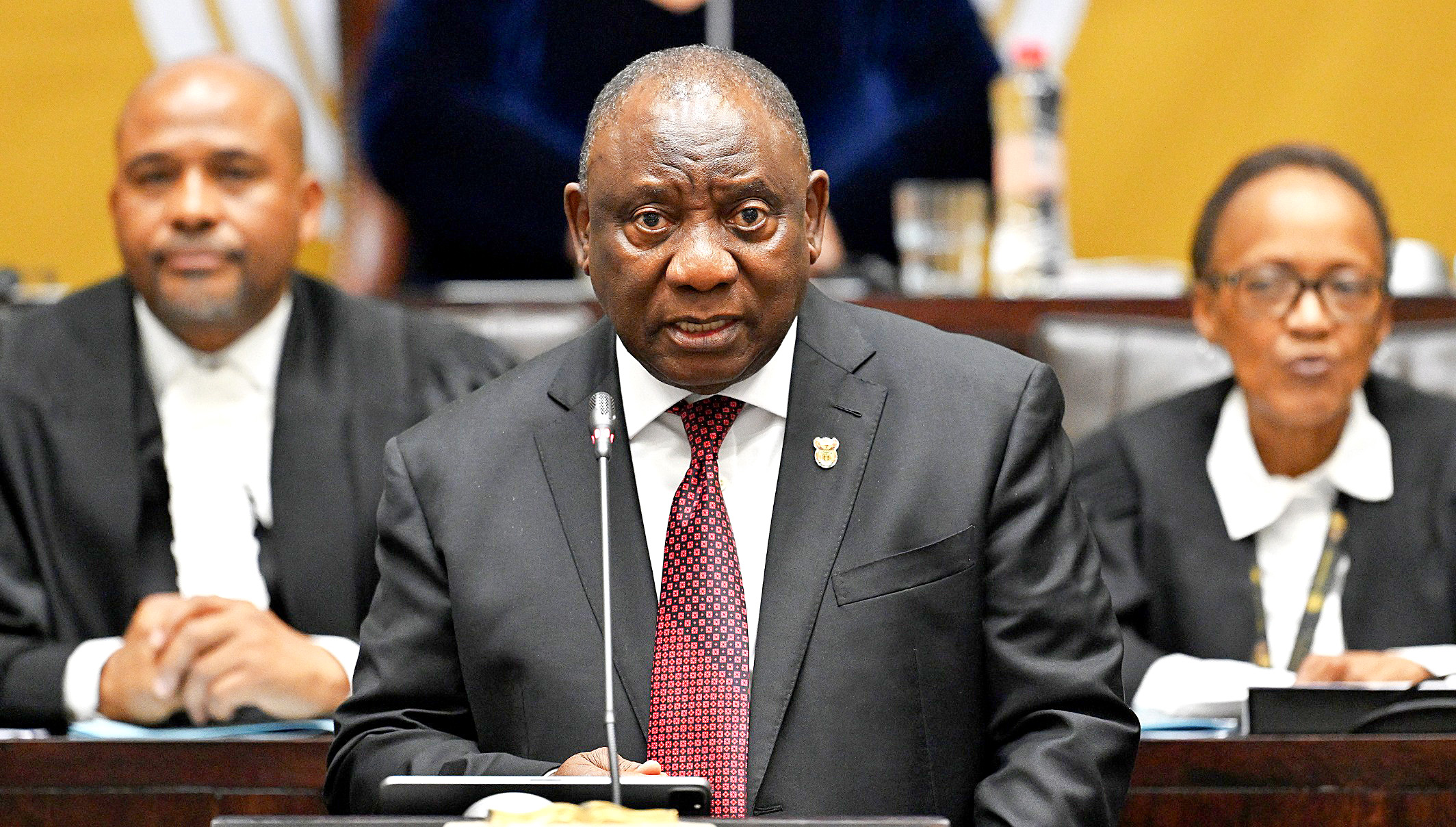President Cyril Ramaphosa used his reply in the National Assembly on Thursday to the Presidency budget vote debate to reaffirm his commitment to making the fragile Government of National Unity (GNU) work despite the multiple crises with which it is grappling.
The GNU came into existence just over a year ago and faces serious issues, particularly over ideological and policy differences. Its biggest test was perhaps in February when it failed to pass the national Budget on two occasions, a first for South Africa.
"There have indeed been disagreements and disputes among GNU members, as you would expect there to be, and yet despite those differences, the GNU partners have chosen to work together for the common good of all South Africans,” said Ramaphosa.
Most of the problems in the GNU are between the two biggest parties, the ANC and the DA.
ANC MP Khusela Diko said the DA was split into two groups: one headed by the party’s leader, John Steenhuisen, who wants the GNU to work, and another led by the federal chairperson, Helen Zille, who seems to be against it. “The DA is now at war with itself,” said Diko.
There has been a strong push from ANC members for the DA to be removed from government, with some arguing that a party cannot remain in power while opposing and voting against a Budget it is expected to help implement.
This sentiment has also been expressed by smaller parties in the GNU, including the UDM.
A spirited and robust debate
In Parliament on Thursday, Ramaphosa faced intense criticism over his handling of corruption, the dwindling economy and lawlessness, among other issues. He was accused of being broken beyond repair and being the embodiment of corruption.
After listening to MPs for several hours, Ramaphosa described the debate as spirited and robust. He admitted that at times, he felt insulted and wished he were an ordinary MP again so he could “sit back, shout and howl”.
Read more: Ramaphosa under fire over dwindling economy, handling of corruption and lawlessness
Several MPs across the political spectrum argued that in the year since its formation, the government had done little or nothing to improve people’s lives.
The President, however, argued that it was unfair not to acknowledge the achievements made since the dawn of democracy in SA, pointing to improved quality of life and the provision of clean water in communities where there was once none.
The DA’s Darren Bergman queried what Ramaphosa’s legacy would be, as many of the problems he inherited had worsened. He referred to anaemic economic growth, rising violent crime and the collapse of municipalities.
The MK party’s John Hlophe was equally critical of Ramaphosa’s administration.
Ramaphosa responded: “Honourable Hlophe gave a long list of everything that is wrong in this country. We are alive to the many challenges we face; at the same time, we should not lose sight of the fact that this democracy, only 31 years old, has made great progress in improving the quality of life of its citizens — not to the level we want — but it has improved the life of its citizens. We still have a long way to go to give our people the type of life they deserve.”
Presidency under fire
The function and effectiveness of the Presidency was another thorny issue. The EFF’s Nontando Nolutshungu opined: “We have gathered to debate the Presidency budget of an administration which is rotten from the head and which has surrendered our nation to criminal syndicates and drug cartels.”
The DA said the Presidency was still plagued by problems, despite having two ministers, three deputy ministers and a handful of directors-general.
“The Presidency still holds the paralysis of the previous term. More bureaucracy has not bolstered oversight,” said Bergman.
Ramaphosa, however, countered that the criticism was unwarranted as the Presidency was not mandated to deliver services.
“The Presidency is a centre of strategic coordination. It is not an implementing department. The Presidency does not go around the country to fix roads or fix potholes. It does not deliver clinics or dispense grants. It does not try accused persons or put them in orange overalls,” he said.
The reference to jailing people comes two weeks after Ramaphosa announced the establishment of a judicial commission of inquiry to probe explosive allegations of criminal syndicates and political meddling in the police service.
The President acknowledged that citizens had become tired of plans and strategies without results, which is why the Department of Monitoring and Evaluation was established to oversee and track performance.
National Dialogue
The upcoming National Dialogue, which comes with a price tag of R700-million, was another thorny issue, and several MPs indicated they would boycott it.
Read more: The National Dialogue — Wishes vs Reality
Ramaphosa, however, said people must ask themselves: “Do we want to break or do we want to rebuild?” DM





 President Cyril Ramaphosa replies to the debate on the Presidency budget vote in Parliament on 17 July. (Photo: Phando Jikelo / RSA Parliament)
President Cyril Ramaphosa replies to the debate on the Presidency budget vote in Parliament on 17 July. (Photo: Phando Jikelo / RSA Parliament)